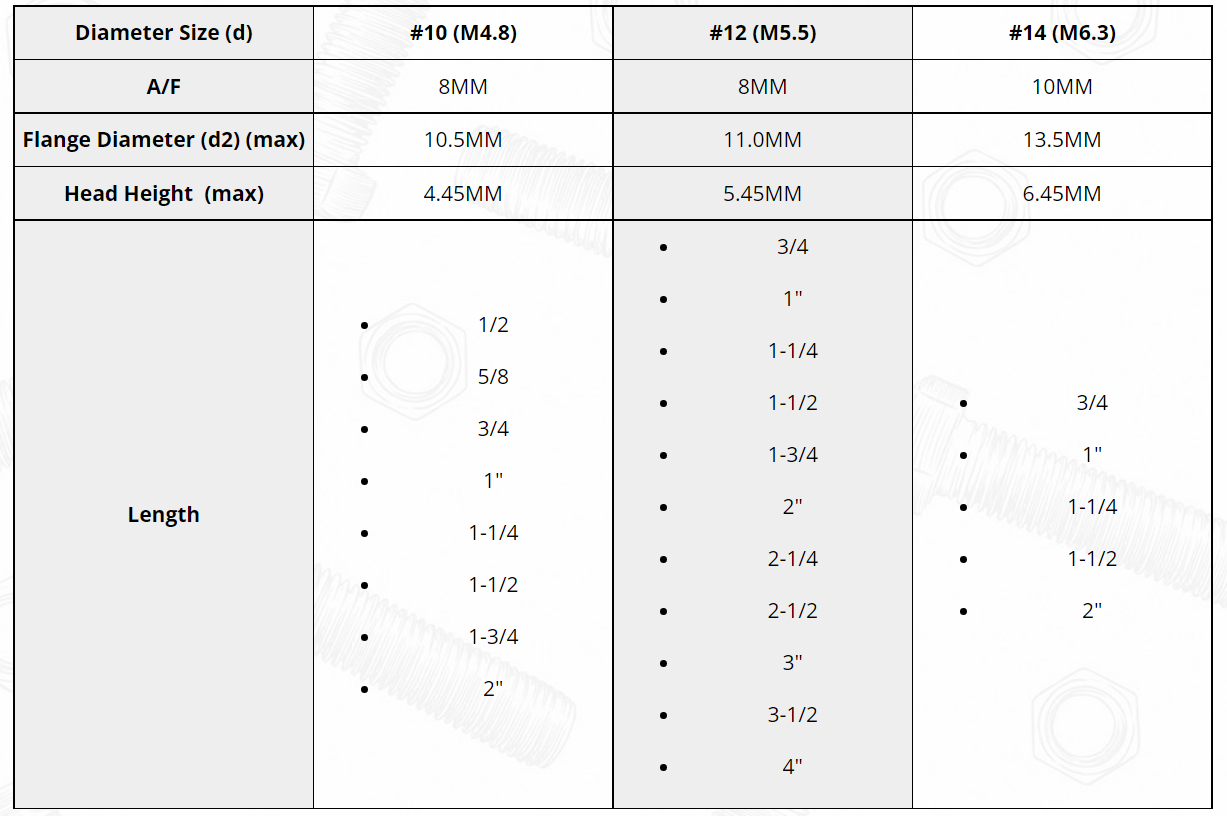Guidelines for Standard Use of Spring Lock Washers in Various Applications
Understanding Spring Lock Washer Standard Service
Spring lock washers are essential components used to prevent the loosening of screws and bolts due to vibration or shifting loads. These specialized washers feature a unique design that enhances their locking capability, ensuring that fasteners remain secure during operation. Understanding the standard service and application of spring lock washers is imperative for engineers, manufacturers, and maintenance personnel involved in assembly and maintenance processes.
What is a Spring Lock Washer?
A spring lock washer is a type of washer characterized by its helical shape. This design allows the washer to exert spring force against the fastener, creating tension that counters the forces of loosening. When a bolt is tightened, the lock washer compresses, storing energy in a way that helps to maintain the tightness of the joint under dynamic conditions. The primary purpose is to absorb vibration and prevent bolts from backing out.
Material and Design Standards
Spring lock washers are typically made from high-carbon steel, stainless steel, or other materials designed to withstand various environmental conditions. The selection of material significantly impacts the washer's performance, particularly in terms of corrosion resistance and tensile strength. For instance, stainless steel is often preferred in marine or corrosive environments, while high-carbon steel may be suitable for general applications.
The standard sizes, thicknesses, and dimensions of spring lock washers are specified by various industrial standards organizations, such as the American National Standards Institute (ANSI) and the International Organization for Standardization (ISO). These standards ensure that washers fit correctly with corresponding fasteners and perform effectively during usage.
Applications of Spring Lock Washers
Spring lock washers find their applications across industries including automotive, aerospace, construction, and electronics. In automotive assembly lines, for example, these washers are employed in engines and chassis to prevent components from loosening due to engine vibrations. Similarly, in aerospace, spring lock washers help maintain the integrity of fasteners in high-stress environments.
spring lock washer standard service

In the electronics sector, where components are often subject to thermal expansion and contraction, spring lock washers help maintain stability in connections
. The aerospace and military industries extoll the reliability of spring lock washers, as even minor failures can have catastrophic consequences.Installation and Best Practices
Proper installation of spring lock washers is crucial to ensuring their effectiveness. The washer should be placed under the bolt head or nut, with the pointed side facing the substrate or the surface being fastened. This orientation ensures that the washer bites into the mating surface and provides the necessary friction to keep the fastener secure.
When tightening, it is essential to follow torque specifications provided by manufacturers. Over-tightening can lead to premature failure of the fastener or the washer, while insufficient tightening may result in looser connections. It is also important to periodically inspect and replace spring lock washers in assemblies exposed to continuous vibration or fatigue to maintain the integrity of joints.
Advantages and Limitations
One of the primary advantages of spring lock washers is their ability to maintain tension under dynamic conditions. They are relatively inexpensive and easy to install, making them a preferred choice in many assembly processes. Unlike other lock mechanisms, they do not require additional space and can be used in confined areas.
However, spring lock washers are not a one-size-fits-all solution. They may not be suitable for very high-temperature applications, as extreme heat can degrade their material properties. Additionally, in environments where moisture can cause rusting or corrosion, it is crucial to choose the right material to prevent failure.
Conclusion
Spring lock washers play a critical role in ensuring the longevity and safety of mechanical assemblies. With a deep understanding of their design, material properties, and installation practices, engineers can leverage these components to enhance the reliability of their products. As industries continue to evolve, the importance of such small yet significant components will remain vital in achieving optimal performance and safety standards in engineering applications. Whether in automotive, aerospace, or any field involving fasteners, incorporating standardized spring lock washers can lead to improved outcomes in assembly efficiency and joint integrity.
-
Top Choices for Plasterboard FixingNewsDec.26,2024
-
The Versatility of Specialty WashersNewsDec.26,2024
-
Secure Your ProjectsNewsDec.26,2024
-
Essential Screws for Chipboard Flooring ProjectsNewsDec.26,2024
-
Choosing the Right Drywall ScrewsNewsDec.26,2024
-
Black Phosphate Screws for Superior PerformanceNewsDec.26,2024
-
The Versatile Choice of Nylon Flat Washers for Your NeedsNewsDec.18,2024










